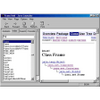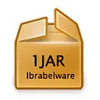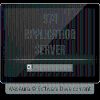A programming environment that brings together people from several different languages via the Java platform
A programming environment that brings together people from several different languages via the Java platform
Popular programs in Java
What is Eclipse
Eclipse is a complete integrated development environment (IDE) mainly focused on the Java programming language. The application is used to write, edit, compile and debug source code. Eclipse is open source software that is developed by the community for free. The IDE stands out from other open source options because it has a rich set of features that rival even commercial applications. The program is written in Java itself. This allows the application to be run uniformly across nearly all operating systems and most versions of Windows.
The main interface in Eclipse is composed of a number of panels that are all customizable. Panels can be added or removed as needed. The interface might seem cluttered to people who are not developing complex or enterprise-style applications. The main editing window uses context sensitive highlighting so that keywords, symbols and other items are all displayed in different colors. The program automatically tracks brackets to make sure they are paired correctly. Multiple source windows can be opened and edited using a tab interface, so debugging and modifying many objects at once is simplified.
One of the most attractive features of Eclipse is that it has real-time error checking. The application automatically checks whether what the user just typed is a valid keyword, variable, method or symbol. It underlines or highlights anything that does not make sense. This allows anyone to know automatically whether a field name is misspelled or whether there are other problems. This feature can actually get annoying because it error checks while typing. Eclipse sometimes provides warning and suggestions before the full name of a method is finished being typed.
Eclipse has powerful automation and debugging tools for programmers. It can automatically generate new class files and stubs for interfaces. It can automatically create get and set methods for fields. Users can set the program to generate javadoc code. The debugging tools are impressive. Eclipse integrates documentation and source code for the core libraries into the debugger. It has tracing and step-through debugging options. This means users can step line-by-line through an application and any standard library methods in order to see why problems are occurring. Users do need to configure the IDE to use the standard library source in some cases.
Eclipse has a number of tools for advanced developers. It supports versioning and version tracking. It has tools to support the development of servers, servlets and web-based applications. There are some collaborative and build tools. Eclipse also has many plug-ins available to make it easier to code and use external tools. Nearly every part of the program from the basic editor up to the way code is compiled can be customized or tweaked from within the menus. The strength of Eclipse is also one of the main weaknesses. The price of the features is an increasingly complex network of nested menus and options that are difficult to navigate and use.
Pros
- Includes all tools for professional Java development
- Open source and free
- Extensible and customizable interface
- Powerful debugging options
Cons
- Interface can be unfriendly and confusing
- Auto-complete and real-time error checking can be annoying
- Little user-friendly documentation






